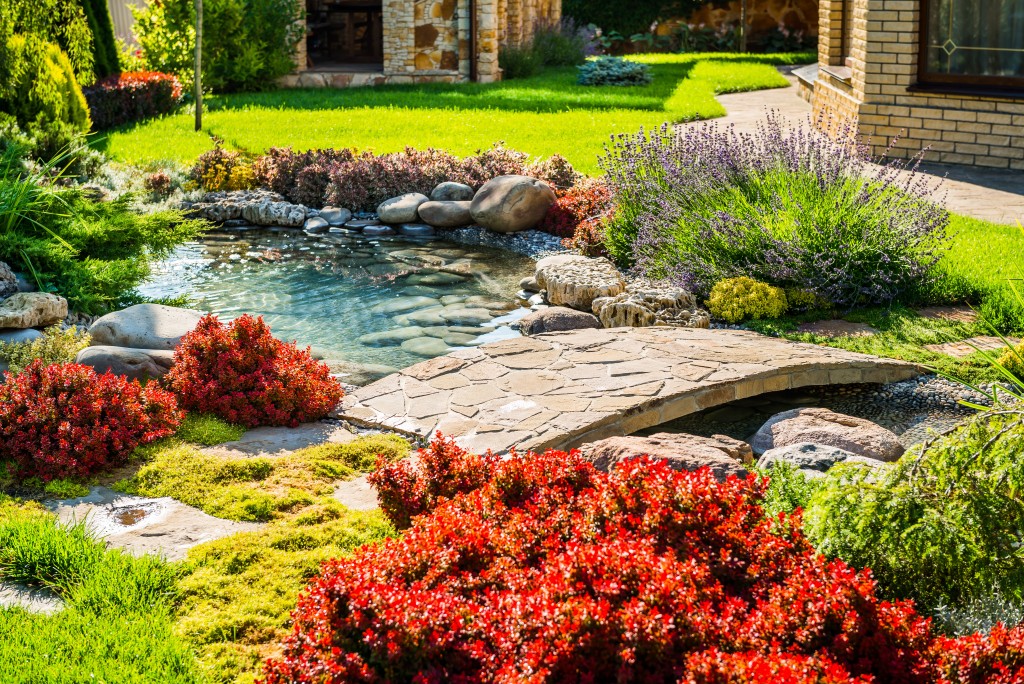Everyone deserves a place where one can meditate, practice yoga, commune with nature, or just sit in quiet contemplation. It has become quite a necessity, especially in these times of rapid change and collective anxieties. A tranquil Zen garden with the sound of birds and falling water in the background and sunlight twinkling over the bamboo canopy comes to mind.
Your backyard, regardless of its size, is the perfect canvas to create a peaceful green escape where all your worries can melt away. But to make sure that you really achieve a “Zen” space there are a few considerations to make. Check out this list of tips and techniques to transform your barren yard into a blissful Zen garden.
Plant Trees for Shade
One of the main characteristics of a Zen garden is privacy and subtlety. Unlike Western formal gardens where everything is out on display, a Zen garden creates intrigue with its many shaded areas. To create a sense of intimacy, plant trees in strategic areas or if your yard already has trees, design your garden around these key spots. The key, however, is to achieve the perfect amount of shade. You wouldn’t want the area to be dark. A tree care expert can help you trim think trees to achieve that soft dappled sun effect in your Zen garden.
Add Plants, Moss, and Ferns
Zen gardens originated in medieval Japan and is a popular feature in Asian countries. So if you want to achieve a truly authentic experience, use foliage that is often seen in these gardens, such as maple trees, conifers, azaleas, rhododendrons, bamboo, and yew. You can also add mosses and ferns such as bracken to achieve a subtropical environment. It would also be suitable to include native plantings as they can be water-efficient and weather-resistant.
Add Rocks and Sand
If you go to any Japanese garden, you’d come across a wide variety of rocks and sand arranged in crisp patterns. Smaller rocks and fine sand are often used to punctuate focal points or to pave paths. Large, flat rocks can also be used to pave paths. On the other hand, big, raw rocks are placed in unique spots to add variety or break the monotony of plantings. But, traditionally, Zen monks used rock arrangements to symbolize elements of the natural world such as mountains, animals, and trees. Whether you use rocks for a functional or cultural purpose, make sure that you get the size and type right.
Create Paths and Pockets
One can say that a Zen garden is a system of secret gardens, with each spot offering a unique experience. To make your Zen garden more interesting and enjoyable, add different pockets or nooks where connected by narrow paths lined with plants. Depending on the features of these nooks, you can assign them specific functions. For instance, the brightest spot can be your go-to place to read, so consider adding a comfortable lounge chair or bench. You can also dedicate a spot for flowers for the times you just want to sit and listen to birdsong.

Include a Water Feature
The perfect Zen garden is one that tickles all the senses. To achieve a multi-sensory experience, install water features throughout your garden. You can choose among fountains, koi ponds, waterfalls, pouring jugs, and streams. Better yet, you can install all these water features to add variety. Water sounds are not only relaxing, but they can also help regulate the temperature in your garden, making it more comfortable.
Add a Bird Feeder/Bath
Flowers and trees are enough to attract a sizeable population of birds and insects, so be sure to have your birdbath and feeder ready. These structures are not just for aesthetic purposes. They give birds the needed respite after hours of looking for food and a place to stay. Make sure to put feeders where birds usually hang out in your garden. And, of course, make it a habit to refill the water and feeds routinely.
Build a Meditation Area or Tea Garden
A Zen garden is best enjoyed and experienced. After a short stroll throughout your creation, you would need a shaded, comfortable place to sit, lie down, meditate, or have a nice cup of tea. Build a space that offers the best view of your garden so you can take in everything as you unwind. The key is to keep it simple, airy, inviting, and clean.
Having your own Zen garden in your background can be a great investment in your health and mental well-being. Make sure to include these essentials and feel free to personalize it and enjoy Zen mornings, afternoons, and evenings for many years to come.


